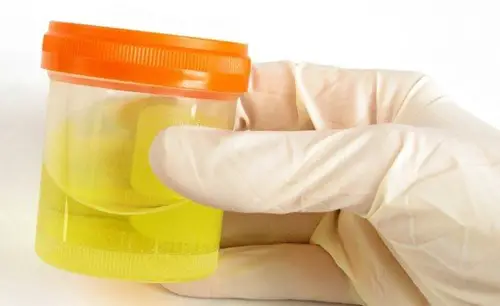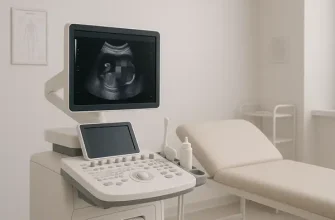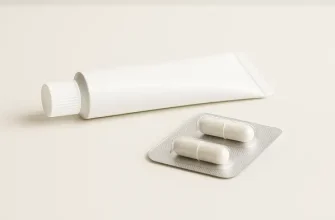E. coli, also known as Escherichia coli, is a bacteria that is often present in the digestive system of both humans and animals. The majority of the time, this specific bacterium does not pose a threat, but if it enters the urinary tract, it can lead to a distressing and unpleasant infection called a urinary tract infection (UTI).
When conducting a urine culture, the detection of E. coli in the urine may suggest a urinary tract infection (UTI), particularly if the quantity of bacteria is significant. Common symptoms of a UTI typically involve frequent urination, discomfort during urination, and pain in the lower abdomen.
If a healthcare provider suspects a UTI, they may order a urine culture to confirm the presence of E. coli or other bacteria in the urine. This is typically done by obtaining a clean-catch urine sample and sending it to a laboratory for analysis.
If a urinary tract infection (UTI) is diagnosed, the usual treatment involves taking antibiotics to get rid of the E. coli bacteria that is causing the infection. Sometimes, further tests might be required to make sure that the bacteria have been fully eliminated and that the infection has not spread to other areas of the urinary system.
Common ways that E. coli can enter the urinary tract
E. coli is a type of bacteria that is usually present in the digestive system, but sometimes it can move to the urinary system, causing an infection. There are several common ways in which E. coli can enter the urinary system.
- Poor hygiene practices: Neglecting proper hygiene practices, such as inadequate wiping after using the toilet and infrequent handwashing, can result in the transmission of E. coli bacteria from the anus to the urinary system.
- Sexual activity: Sexual activity can also introduce E. coli bacteria into the urinary tract. This is particularly true for women, who have a shorter urethra than men, which makes it easier for bacteria to enter the bladder.
- Use of certain birth control methods: Women who use diaphragms for birth control are at an increased risk of developing UTIs because the diaphragm presses against the urethra, making it harder to empty the bladder completely and increasing the risk of bacterial growth.
- Waiting too long to urinate: Holding urine for too long can cause bacteria to multiply and grow, increasing the risk of infection. It’s important to urinate regularly and not hold urine for long periods of time.
- Urinary catheterization: Individuals in need of urinary catheterization have a higher likelihood of developing urinary tract infections due to the potential for bacteria to be introduced into the urinary system through the catheter.
- Immunocompromised state: Individuals who have compromised immune systems, such as those with HIV/AIDS or undergoing chemotherapy, have a greater susceptibility to contracting urinary tract infections (UTIs) due to their bodies’ limited ability to combat infections.
How to Understand the Urine Culture Test Results
Interpreting urine culture test results can be daunting, but we aim to simplify the process for you. We will discuss various types of bacteria frequently examined in urine cultures and how to interpret their findings.
The table below explains how to understand the urine culture test results.
| Bacteria | Number of Colonies | Interpretation |
|---|---|---|
| No growth | None | No infection present |
| <10,000 CFU/mL | Less than 10,000 colonies | Contamination or colonization. Repeat testing is necessary to confirm the infection. |
| 10,000-100,000 CFU/mL | 10,000 to 100,000 colonies | Likely UTI. Treatment may be necessary depending on symptoms. |
| >100,000 CFU/mL | More than 100,000 colonies | UTI is present and requires an antibiotic treatment plan. |
The way the urine culture test results are understood primarily relies on the amount of bacteria colonies found in the urine sample. If there are no bacteria, it indicates no infection. Nevertheless, if the urine culture demonstrates less than 10,000 CFU/mL, it might be because of contamination or colonization. In instances like these, it is essential to conduct additional testing to verify the existence of the infection.
If the urine culture test shows 10,000 to 100,000 CFU/mL, it indicates the presence of a UTI that requires treatment, depending on the severity of the symptoms. On the other hand, if the test shows more than 100,000 CFU/mL, it indicates an active urinary tract infection that needs immediate treatment with antibiotics.
How to treat E. coli in the urinary tract?
Escherichia coli, also known as E. coli, is often the main cause of urinary tract infections (UTIs). If left untreated, the bacteria can lead to some serious complications, which is why it’s important to identify and treat it as soon as possible. We’ll go over how to treat E. coli in the urinary tract:
- Visit the doctor: The first step in treating any UTI, including one caused by E. coli, is to visit the doctor. Your doctor will run a series of tests, including a urine culture, to determine the strain of bacteria you’re dealing with.
- Antibiotics: If your test results indicate that you have an E. coli infection, your doctor will likely prescribe a course of antibiotics. Antibiotics are essential in treating an E. coli infection as they help kill off the bacteria and prevent it from spreading any further.
- Hydrate: It is important to consume an ample amount of liquids when dealing with an E. coli infection. Specifically, drinking water aids in removing bacteria from the urinary tract and can promote faster recovery. It is recommended to consume at least 8-10 glasses of water daily.
- Avoid irritants: During the course of your treatment, you’ll want to avoid any known irritants to the urinary tract. This includes things like spicy foods, caffeine, and alcohol, which can all aggravate the bladder and make your symptoms worse.
- Follow up: After completing your course of antibiotics, it’s important to follow up with your doctor to ensure that the infection has been properly treated. If your symptoms persist or return, it may be a sign of a more serious underlying condition, and you’ll need further evaluation.
Treating an E. coli infection requires a combination of antibiotics, hydration, and lifestyle modifications. By following these steps, you can help reduce your symptoms and prevent further complications from developing. Don’t hesitate to consult with your doctor if you suspect you may have a UTI or are experiencing any symptoms. Early intervention is key to a successful treatment.
Preventing E. coli in the Urinary Tract: Tips for Healthy Habits
Urinary tract infections, often caused by Escherichia coli (E. coli) bacteria, are uncomfortable and can lead to serious health issues if untreated. But worry not! Implementing healthy habits can significantly reduce one’s risk of contracting these infections. Here’s how you can keep your urinary tract E. coli-free:
Stay Hydrated:
Drinking plenty of fluids, particularly water, is the cornerstone of urinary tract health. Regular hydration helps cleanse the system by flushing out bacteria before it can cause harm.
Practice Good Bathroom Hygiene:
For those who use toilet paper, wiping from front to back after using the toilet is crucial in preventing the spread of E. coli from the anal region to the urethra.
Empty Your Bladder Regularly:
Don’t hold in urine for long periods. Frequent urination helps eliminate bacteria from the urinary tract, thereby reducing infection risk.
Cranberry Juice May Help:
Though the evidence isn’t conclusive, some studies suggest that cranberry juice might prevent UTIs by making it more difficult for bacteria to adhere to the urinary tract walls.
Maintain a Healthy Diet:
Eating a balanced diet rich in fiber can help keep your bowels regular, reducing the risk of E. coli spreading from your stool to your urinary tract.
Sexual Activity Precautions:
If sexually active, urinate soon after intercourse to help flush away any bacteria that may have been introduced. Also, consider showering before and after sex and avoid using spermicides, which can increase the risk of UTIs.
Consider Probiotics:
Probiotics, particularly those found in fermented foods or supplements, can promote a healthier balance of bacteria in your body and may reduce the likelihood of E. coli taking hold.
Stay Clean, but Be Careful with Products:
While it’s essential to stay clean, avoid irritating the genital area with harsh soaps or body washes. Choose mild soap and avoid douching or using deodorant sprays in the genital area.
Wearing Breathable Clothing:
Tight-fitting clothes can trap moisture and create an environment where bacteria thrive. Opt for loose-fitting, breathable fabrics, especially for underwear.
Don’t Smoke:
Smoking can weaken your immune system, making it harder for your body to fight off infections, including UTIs.
By sticking to these guidelines, you’ll bolster your defenses against urinary tract infections. Should symptoms such as a burning sensation during urination, frequent urges to urinate, or abdominal pain occur, it’s essential to consult a healthcare provider promptly for appropriate care.
FAQ about E. coli in Urine:
Q: What does it mean if E. coli is found in a urine culture?
A: If E. coli is detected in a urine culture, it means that the bacteria have entered the urinary tract and are multiplying, which can lead to a urinary tract infection (UTI). E. coli is the most common cause of UTIs.
Q: How serious is E. coli in urine symptoms?
A: Symptoms of E. coli in urine can range from mild discomfort to severe pain and fever. If left untreated, the infection can spread to the kidneys and cause serious complications.
Q: What are the first signs of E. coli in urine?
A: The first signs of E. coli in urine may include frequent and urgent urination, pain or burning during urination, cloudy or bloody urine, and lower abdominal pain.
Q: What is the best antibiotic for E. coli?
A: The best antibiotic for E. coli will depend on factors such as the patient’s age, medical history, and the severity of the infection. However, some commonly prescribed antibiotics for E. coli include Ciprofloxacin, Trimethoprim-sulfamethoxazole, and Nitrofurantoin.
Q: What kills E. coli in bladder naturally?
A: Some natural remedies that may help to kill E. coli in the bladder include drinking plenty of water to flush out bacteria, drinking unsweetened cranberry juice to acidify the urine, and taking probiotics to promote healthy bacterial balance in the gut and urinary tract.
Q: What foods cause E. coli in urine?
A: Foods that have been linked to E. coli contamination include undercooked ground beef, raw milk and cheese, fresh produce, and contaminated water.
Q: What kills E. coli fast?
A: Chemicals such as chlorine and hydrogen peroxide can kill E. coli rapidly on surfaces and in water. However, these chemicals should not be consumed or used directly on the body.
Q: Can E. coli be treated without antibiotics?
A: In some cases, mild E. coli infections can clear up on their own with rest, increased fluid intake, and natural remedies. However, more severe infections typically require antibiotic treatment to prevent complications. Always consult a medical professional for diagnosis and treatment recommendations.










E-coli is among the most typical organisms discovered in urine and it usually clears up with oral antibiotics. It’s not triggered by anything you eat however mostly by wiping yourself from back to front rather front to back. Speak with your GP and request for a description. It could be due to your auto-immune disease.
Has anybody had their urine sample come back with traces of e-coli? My doctor asked if I had any symptoms of a bladder infection, which I do not.
He stated I would require antibiotics if I have symptoms, but so far none and that was at 11 weeks( now 15).
Has anybody else had this and if so did they take the antibiotics without the symptoms? I just don’t want to take antibiotics without requiring them.
I will call him tomorrow morning to check but simply desired your opinions?
this happens to me more often than I can count and I can guarantee I haven’t ‘wiped from back to front’ since I was a pre-schooler. I use no less that a 100 pack of baby wipes p/week as I use them after every bowel movement….and lots of them. I want to know how in the world this is showing up in my culture. the only thing I can think of is that no matter how hard I try to get a ‘clean catch’, it proves very difficult. I am old, I do not urinate in a ‘stream’ with high pressure. I do my best to get it from as high up as possible (when working blind in a public toilet at the doctors office) but I think it has to do with it running downwards. Frustrated. Tired of this.